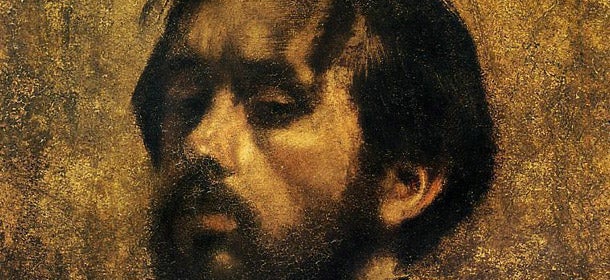What Salvador Dali and Jeff Bezos Have in Common
Opinions expressed by Entrepreneur contributors are their own.
What do Salvador Dalí and Jeff Bezos have in common? At first glance, besides sharing a passing resemblance, perhaps not much. But when you think about how artists and entrepreneurs develop and bring ideas to fruition, there are many similarities, especially when you look at the journey getting there.
Over the past 20 years, I’ve had the fortune of designing, developing and launching a host of new products. Yes, some have failed. But others have turned into successful businesses. So how did each idea come about? By learning from the masters of art.

“Art demands constant observation.”— Vincent van Gogh
Artists engage with the world in a different way than most people. They observe everything all the time — shapes, lines, colors, connections, layers and textures. They see both what is there as well as the empty spaces where nothing exists. They expose themselves to new places and new experiences.
Observation also needs to be a continuous activity for entrepreneurs. You need to look for patterns, trends and connections. You need to observe below the surface and beyond the headlines to see the essence of what is happening in the world.
Related: Richard Branson on the Best Places to Find Inspiration
As a serial entrepreneur, I’ve found that listening to customers, employees, partners, thought leaders and reading industry news, technology trends, Twitter feeds, LinkedIn headlines, and blogs are essential in identifying new trends. I’ve also learned that new environments are a wonderful place for entrepreneurs to observe the world. Thinking about new business opportunities over the years, I’ve made a conscious effort to meet new people, expose myself to different industries and visit other countries, even if for no other purpose than to observe and learn.

“Don’t wait for inspiration. It comes while one is working.”
— Henri Matisse
From this constant observation will come inspiration. For most entrepreneurs, the world is full of ideas and opportunities. These ideas will often appear out of the blue — talking to a customer, in the shower, driving to work or lying in bed at night. The important thing is to capture the idea.
Over the years, I’ve found that this doesn’t happen naturally. It requires deliberate practice. You have to resist evaluating each new idea right away. Instead, just jot it down. Sometimes I send myself an email or leave myself a voicemail. This is important because while some ideas will immediately capture your attention, others might need some time to bake. I also carry a journal of ideas, like an artist carries a sketchbook, and then periodically review my old ideas. Approaching them at a different time and from a different perspective can provide new light.
Related: 3 Ways to Break Out of Your Comfort Zone

“A man paints with his brains and not with his hands.”
— Michelangelo
The real work begins once an idea is deemed worth pursuing. For a painter, the first step is a study — a working sketch or painting, often at a smaller scale. This helps an artist compose the piece and identify challenges. Sometimes the result is a minor adjustment to the original idea and other times a more radical re-envisioning. The artist may also decide not to pursue the idea after this process.
Successful entrepreneurs will do the same. You will initially flesh out your idea, putting some shape to it. You will start to understand the scope of the idea.

“Painting is easy when you don’t know how, but very difficult when you do.” — Edgar Degas
A great painting requires a skilled, hard-working and patient artist. A great business requires a skilled, hard-working, and patient entrepreneur. Neither requires a great idea — they just need an idea that inspires. From here, passion will create the focus and drive required to put in the long hours and overcome the inevitable obstacles that will arise.
In the end, some will starve, some will make a modest living and some will thrive. Some, like Claude Monet and Jack Dorsey, will create works that are initially misunderstood, but ultimately revered. Others, like Norman Rockwell and Mark Zuckerberg, will find enormous popularity. And a very few, like Leonardo da Vinci and Steve Jobs, will create masterpieces of lasting beauty.
What do Salvador Dalí and Jeff Bezos have in common? At first glance, besides sharing a passing resemblance, perhaps not much. But when you think about how artists and entrepreneurs develop and bring ideas to fruition, there are many similarities, especially when you look at the journey getting there.
Over the past 20 years, I’ve had the fortune of designing, developing and launching a host of new products. Yes, some have failed. But others have turned into successful businesses. So how did each idea come about? By learning from the masters of art.






